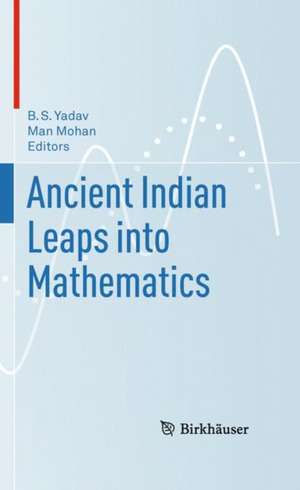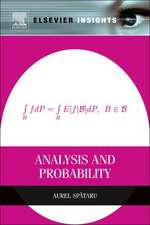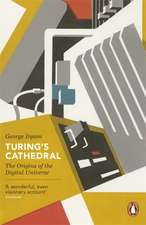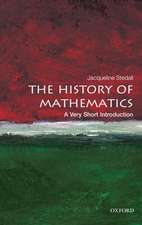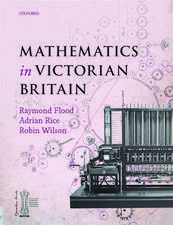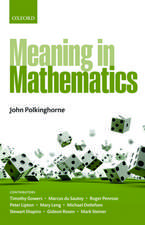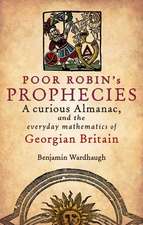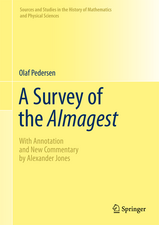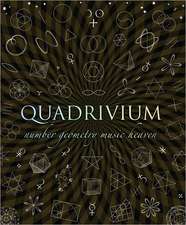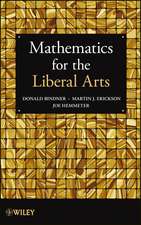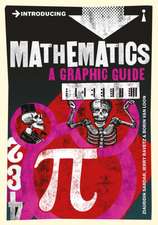Ancient Indian Leaps into Mathematics
Editat de B.S. Yadav, Man Mohanen Limba Engleză Hardback – 28 oct 2010
Ancient Indian Leaps into Mathematics examines these ancient mathematical ideas that were spread throughout India, China, the Islamic world, and Western Europe. Through a systematic approach, it gives an historical account of ancient Indian mathematical traditions and their influence on other parts of the world.
Preț: 806.28 lei
Preț vechi: 983.27 lei
-18% Nou
Puncte Express: 1209
Preț estimativ în valută:
154.27€ • 161.09$ • 127.40£
154.27€ • 161.09$ • 127.40£
Carte tipărită la comandă
Livrare economică 15-29 aprilie
Preluare comenzi: 021 569.72.76
Specificații
ISBN-13: 9780817646943
ISBN-10: 0817646949
Pagini: 217
Ilustrații: XX, 218 p. 30 illus.
Dimensiuni: 160 x 240 x 14 mm
Greutate: 1.14 kg
Ediția:2011
Editura: Birkhäuser Boston
Colecția Birkhäuser
Locul publicării:Boston, MA, United States
ISBN-10: 0817646949
Pagini: 217
Ilustrații: XX, 218 p. 30 illus.
Dimensiuni: 160 x 240 x 14 mm
Greutate: 1.14 kg
Ediția:2011
Editura: Birkhäuser Boston
Colecția Birkhäuser
Locul publicării:Boston, MA, United States
Public țintă
ResearchCuprins
Foreword.- Prelude.- Indian Mathematics in the Medieval Islamic World.- Brahmagupta: the Ancient Indian Mathematician.- Indian Calendrical Calculations.- India’s contributions to Chinese Mathematics up to the Eighth Century A.D..- Some Discussions about how Indian Trigonometry affected Chinese Calendar-Calculation in the Tang Dynasty.- On the Application of Areas in the Sulbasutra.- Indian Mathematical Tradition with special reference to Kerala: Methodology and Motivations.- Mainland South-East Asia as a Crossroad of Chinese and Indian Astronomy.- Mathematical Literature in the Regional Languages of India.- Pascal’s Triangle in 500 BC.- André Weil: His Book on Number Theory and Indian References.- The Algorithm of Extraction in both Greek and Sino-Indian Mathematical Traditions.- Index.
Textul de pe ultima copertă
This book presents contributions of mathematicians covering topics from ancient India, placing them in the broader context of the history of mathematics. Although the translations of some Sanskrit mathematical texts are available in the literature, Indian contributions are rarely presented in major Western historical works. Yet some of the well-known and universally-accepted discoveries from India, including the concept of zero and the decimal representation of numbers, have made lasting contributions to the foundation of modern mathematics.
Key topics include:
Key topics include:
- The work of two well-known Indian mathematicians: Brahmagupta and Bhaskaracharya;
- The relationship of Indian mathematics to the mathematics of China and Greece;
- The transmission of mathematical ideas between the Western and non-Western world;
- A study of Keralese mathematics and coverage of the techniques used in the Śulbasūtras;
- The calendrical calculations, complete with computer programs, enabling readers to determine Indian dates.
Caracteristici
Follows the movement of mathematical ideas that were spread from India, China, the Islamic world, and Western Europe Discusses concepts and ideas developed in different regions in India, China, and Greece Includes methods and a computer program to help the reader fully understand the ideas presented for the chapter on calendrical calculations Includes supplementary material: sn.pub/extras
